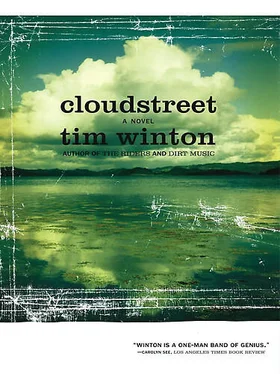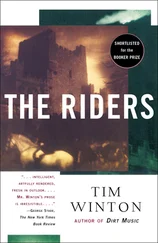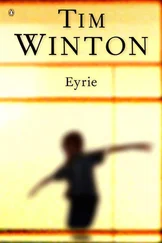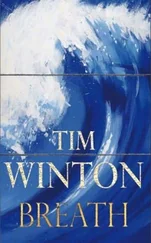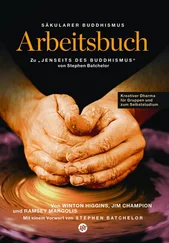It’s a bonzer, says Fish, taking the business right down to Lester’s habitual finishing words.
It surely is, boy. We’ll put it in the oven while you have a bath.
Do stories?
I used to be crippled with stories, Lester thinks, loaded and hopeless with em. Now I can’t work up a decent joke.
Cmon, then, I’ll tell you stories while you’re in the bath.
The farm ones, Lestah.
Lester wipes his hands on his apron and pulls it off. He tidies down the bench, leads the boy down into the bathrom. He doesn’t remember the farm, he thinks sadly; a shame to have been robbed of it. He runs the water, throws busted packing cases into the fire box of the heater and undresses the boy. Fish smiles in his face. There’s bumfluff on his cheeks now. Lord, he’s nearly a man. There’s pulpy flesh growing on him; he’s fatting up and needs bigger trousers. At least he’s in long pants now. It’s less awful than it was.
Fish giggles in the water, balls afloat. The water barely reaches his waist. Any deeper and he’ll try to get under it. He can’t be left alone. Lester kneels by the tub with a bar of Velvet and a backache.
Stories!
Orright. Well. Well. Lester sighs. The skin on the back of his arms is flaky with cancers. He can’t think of anything.
Lest! Lestah!
There was this boy—
Lessst!
Orright, there was this boy. And he lived on a farm. Actually, this is me, it was a grape farm—
Lestaah! Fish juggled in the water. Lester soaped his pink chest and felt the tension in him, the impatience.
Orright, there was this boy called Fish.
Hah! Whacko!
And he lived on a farm with only his brother—
Quick! Whacko, Lest!
Yeah, with Quick. Everyone else was gone on holidays. One night it started to rain, see, and it came down like all of Heaven was tryin to get in the roof. It rained and rained and rained until the creek bust it banks. Pretty soon there was water in the kitchen an water in the lounge an water under the beds. So Quick wakes Fish up and tells him they gotta go. They have to try and make it into town. Now Quick is bigger than Fish. He helps him into his clothes and holds his hand as they wade out into the water. There’s rain peltin down and it’s dark. Quick puts Fish up on his shoulders and he strides out into the water. It’s a swirling torrent—
Yeah. And the water. Yairs. They go in the water. To the big country. Yeah.
Lester loses his breath. Fish leans back with his head against the end of the tub looking dreamy and gone. No, thinks Lester, that’s not what happens.
An people there for em, says Fish. There’s people there.
Oh, God.
Fish looks smiling upon him.
VI. Down Among Them, Killing
IN the barely dimpled surface of country, the wheat is its own map, neat and dogmatic in its boundaries. You can see the sun in it, the prodigal rain, the magic tons of superphosphate. From ground level, the wheat is the whole world, but in the air, or beyond air and sky, the wheatbelt is just that, a strap of land surrounded by the rest of the world. Beneath the clouds of crows it’s hard to find a feature, unless you see a gravel pit now and then, like this one here, with its stubborn island of stonefed trees which cast puddles of shadows about them like shoals. Where the man is still sleeping. Now you make out his vehicle, an old hoodless ute, already rippling with heat, and his dog which snaps at flies and rests its head on its paws. There’s dog hair on the old army blankets, some dried blood, and a smattering of roo ticks. The bends in the air beside him mean there is still some heat in the smokeless remains of the fire. Across the treefork a Lee-Enfield is slung, its scarred butt looking like old pub furniture. Now in the shadow you can see an arm, and a rough chin, a boy’s chin really. If you were me, you’d want to climb in under that blanket and spoon up by him, to take what time you could to smell him and hear his breath.
In the end it’s the flies that wake him. They cluster on the feed sacks in the back of the ute, sucking at the dark honey of thickened blood. The traffic sound of them gets him rolling on his side.
Gday, Bill, he says to the dog.
The dog stands and then sits back morosely. Bill is the saddest dog ever to find water, but he’s companionable in his glumness. The young man leans across to a blackened pot and hauls out a meat twined bone. He throws it to the dog who gazes from it to his master as if truly insulted.
What, you sick of roo?
The dog closes its eyes.
Well, give it back then, I’m hungry.
Bill gets up and retires beneath the shade of the ute. The young man throws back the blankets, gets up and fills a jam tin from the waterbag in the tree. He sets the tin on the fire and surrounds it with white tree limbs snapped across his knee. In his duffel bag he finds an old linty piece of damper and hunkers down by the fire, resisting the need to pee. His skin is raw with sunburn. He has the square, aged hands of his family, and his legs are so long that in a squat his knees have to be peeped over or looked between. With a pocket knife he scrapes dirt from beneath his fingernails. His unlaced boots rest beneath him like luggage.
Who’s gunna do the dishes after brekky, dog? he says as he spins the knife on the back of a skillet. The blade turns, flashing sunlight, and finishes pointing at his boot. Well, the knife never lies, he says with a laugh. I shoulda flamin known that.
This morning he’ll pull a few gilgies out of some farmer’s dam and boil them up for lunch, he’ll sight the gun in with the vice on the back of the ute, and he’ll have to start priming his own shells again. If he can find some shade in the afternoon he’ll drag out a penny dreadful western and read till he’s asleep. The dog will sit beside him in mournful attendance. Barely a thing will move all day in the wheat except the insects and the odd rambling snake.
Quick loaded up the ute when the sun was low on the land. With the mutt beside him on the seat, he drove to the rocky pool and parked in beside the smooth monolith furthest from the water. He laid his ammo along the roof of the cab, stood the rifle against the window and sat back with a smoke to wait. He fiddled with the cable that connected the spotlight to the battery. The dog sat inside, looking at him through the rear window. Quick was learning not to think much at these times, only to listen. Already he could hear them out in the wheat. The sky became the colour of billy tea as the sun disappeared. The motor ticked with cooling. Quick was glad tonight was Friday — he needed a bath something terrible.
When he heard them close he saw old Bill tense up and he got up and rested his elbows on the roof. He slipped a mag into the three-oh and worked a shell into the breech. He let them come on in to the sandy clearing, to the spot where the slopes fuzzed with grass close to the water. The pool was only the size of a double bed. With the faint sky behind them, the roos were easy to see. He counted six, a couple of big bucks among them. He held off, knowing that unless he’d been doing his job better than he thought, there’d be plenty more to come yet.
The pool was shoulder-to-shoulder with them when he switched on the spot. They went rigid and opened their eyes to him. Quick worked from left to right without haste. Shoot, load, aim, shoot. The roos stood there, unwillingly, but unable to tear themselves away. Their necks curved richly, their ears stood twitching. Haunches ticked with muscle and nerve. The sound of the Lee-Enfield was honest and uncomplicated, always leaving enough space in the air for the sound of the bolt clicking in a new shell, as the roos fell, snouts flicking up like backhanded drunks. When finally the survivors began to stagger away, Quick took fast shots, moving the spot with his elbow, until he was taking them down in their stride. And then his sighting eye gave out into a watery blur so that he had to rest. Around the pool the fallen animals lay like a new stone formation, the colour of granite. Some heaved with breath or blood. Even with the whine of sound shock in his ears, Quick could hear the scratching of paws in the sand. He loaded up again, left the light on, and went down among them, killing. He didn’t get too close, for fear of catching a hind leg in the nuts. He shot those still moving, only a few. Then he let them settle while he rolled a smoke, hunkered down by the water, his eyes closed against the spotlight. He took hard drags and spat now and then until his ears cleared. Well, there’s a quid or two, he thought.
Читать дальше
